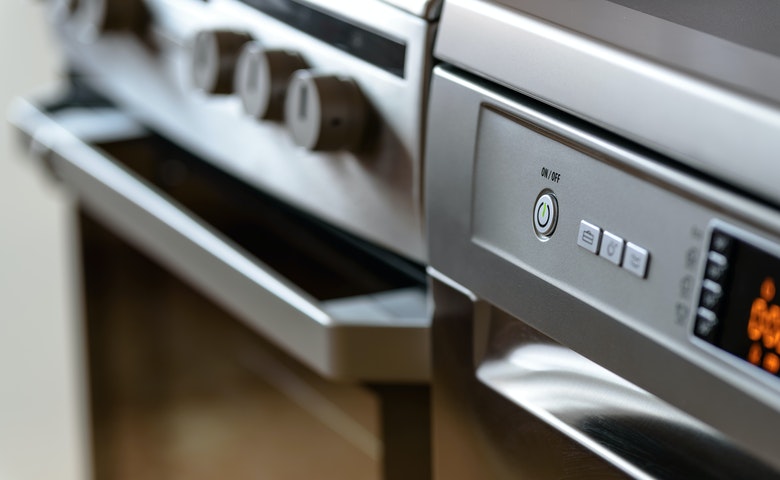Home Renovation Loans: How to Finance Your Dream Home Remodeling Project

Home renovation projects are an excellent way to breathe new life into your living space and increase the value of your property.
However, the cost of these projects can be a significant barrier to achieving your dream home.
Luckily, home renovation loans offer a solution to finance your project without draining your savings account.
In this blog post, we will explore the different types of home renovation loans available, their eligibility criteria, and how to choose the right one for your needs.
With this guide, you can make informed decisions to finance your dream home remodeling project and create a space that truly feels like home.
What is a Home Renovation Loan?
If you’re planning to renovate your home but don’t have enough funds to cover the costs, a home renovation loan may be the solution you need.
A home renovation loan is a type of loan that is specifically designed to finance home improvement projects.
It is a great way to fund your home renovation without having to use your savings or credit cards.
There are various types of home renovation loans available, and each comes with its own set of eligibility requirements, interest rates, and repayment terms.
Here are some of the most common types of home renovation loans:
Home Equity Loans
Home equity loans are a popular option for financing home renovation projects.
They allow you to borrow against the equity in your home, which is the difference between the current value of your home and the outstanding mortgage balance.
Here are some things to consider when applying for a home equity loan:
Eligibility:
To qualify for a home equity loan, you must have a significant amount of equity in your home.
Typically, lenders require that you have at least 20% equity in your home, although some lenders may accept less.
You will also need to have a good credit score and a steady income to be eligible for a home equity loan.
Interest rates:
Home equity loans usually offer a fixed interest rate, which means that your monthly payments will remain the same over the life of the loan.
The interest rates on home equity loans are typically lower than those on personal loans or credit cards, making them an attractive option for financing home renovations.
Loan terms:
Home equity loans are repaid over a fixed term, usually between 5 and 30 years.
The loan term you choose will depend on your financial situation and how much you can afford to repay each month.
Longer loan terms will result in lower monthly payments but higher overall interest costs.
Loan amount:
The amount you can borrow with a home equity loan is based on the equity in your home and other factors such as your credit score and income.
Lenders typically allow you to borrow up to 80% of your home’s equity, although some may offer higher or lower loan limits.
Risks:
Home equity loans use your home as collateral, which means that if you are unable to repay the loan, the lender may foreclose on your home.
It is important to make sure that you can afford the monthly payments before taking out a home equity loan.
Overall, home equity loans can be a great option for financing home renovation projects.
They offer low interest rates, fixed payments, and flexible loan terms.
However, it is important to consider the risks and make sure that you can afford the loan before applying.
Home Equity Lines of Credit (HELOCs)
Another popular option for financing home renovation projects is a home equity line of credit (HELOC). A HELOC is considered a revolving line of credit that usually allows you to borrow against the equity in your home.
Here are some things to consider when applying for a HELOC:
Eligibility:
To qualify for a HELOC, you must have a significant amount of equity in your home.
Typically, lenders require that you have at least 20% equity in your home, although some lenders may accept less.
You will also need to have a good credit score and a steady income to be eligible for a HELOC.
Interest rates:
HELOCs typically offer a variable interest rate, which means that your monthly payments may fluctuate over the life of the loan.
The interest rates on HELOCs are typically lower than those on personal loans or credit cards, making them an attractive option for financing home renovations.
Repayment terms:
HELOCs offer flexible repayment terms.
You can borrow as much or as little as you need, up to a predetermined credit limit.
You will only pay interest on the amount you borrow, and you can repay the loan over a flexible term.
Draw period and repayment period:
HELOCs typically have two periods: a draw period and a repayment period.
During the draw period, which can last up to 10 years, you can borrow against the credit line as needed.
During the repayment period, which can last up to 20 years, you must repay the amount borrowed plus interest.
Risks:
Like home equity loans, HELOCs use your home as collateral, which means that if you are unable to repay the loan, the lender may foreclose on your home.
It is important to make sure that you can afford the monthly payments before taking out a HELOC.
Overall, HELOCs can be a great option for financing home renovation projects.
They offer low interest rates, flexible repayment terms, and the ability to borrow as much or as little as you need.
However, it is important to consider the risks and make sure that you can afford the loan before applying.
Personal Loans
If you don’t have enough equity in your home to qualify for a home equity loan or HELOC, a personal loan can be a good option for financing your home renovation project.
Personal loans are unsecured loans, which means that they do not require collateral.
Here are some things to consider when applying for a personal loan:
Eligibility:
To qualify for a personal loan, you will need a good credit score and a steady income.
Lenders will look at your credit history, income, and debt-to-income ratio when deciding whether to approve your loan application.
Interest rates:
Personal loans typically have higher interest rates than home equity loans or HELOCs, but they are still often lower than credit card rates.
The interest rate you receive will depend on your credit score and other factors.
Loan terms:
Personal loans are repaid over a fixed term, usually between 1 and 7 years.
The loan term you choose will depend on your financial situation and how much you can afford to repay each month.
Shorter loan terms will result in higher monthly payments but lower overall interest costs.
Loan amount:
The amount you can borrow with a personal loan depends on your credit score, income, and other factors.
Lenders typically offer personal loans up to $50,000, although some may offer higher or lower loan limits.
Risks:
Personal loans are unsecured, which means that they do not require collateral.
If you are unable to repay the loan, the lender may take legal action against you to collect the debt.
It is important to make sure that you can afford the monthly payments before taking out a personal loan.
Overall, personal loans can be a good option for financing home renovation projects if you do not have enough equity in your home to qualify for a home equity loan or HELOC.
They offer fixed payments and flexible loan terms, but they can have higher interest rates than other types of loans.
It is important to consider the risks and make sure that you can afford the loan before applying.
Benefits of Home Renovation Loans
Financing Flexibility
Home renovation loans provide financing flexibility, allowing homeowners to choose the type of loan that best fits their needs and financial situation.
Increased Home Value
Home renovations can increase the value of a home, and a home renovation loan can provide the financing needed to make these improvements.
Tax Deductible Interest
The interest paid on a home renovation loan may be tax-deductible, which can help offset the cost of the renovation project.
Improved Quality of Life
Home renovations can improve the quality of life for homeowners, whether it’s by creating more space, increasing energy efficiency, or updating outdated features.
Competitive Interest Rates
Home renovation loans often have competitive interest rates, making them an affordable financing option for homeowners.
Conclusion
In conclusion, financing a home renovation project can be a big financial decision.
It is important to carefully consider all of your options before choosing the right financing method for your project.
Home equity loans and HELOCs can be a good choice if you have a significant amount of equity in your home.
Personal loans can be a good option if you do not have enough equity in your home to qualify for a home equity loan or HELOC.
When deciding which financing option is right for you, consider factors such as interest rates, repayment terms, loan amounts, eligibility requirements, and risks.
It is important to make sure that you can afford the monthly payments and that you understand the terms and conditions of the loan before signing any agreements.
No matter which financing option you choose, it is always a good idea to work with a reputable lender who can help guide you through the process and answer any questions you may have.
With the right financing and a clear plan in place, you can turn your dream home renovation project into a reality. Keep reading our daily updates and interesting tips online.














